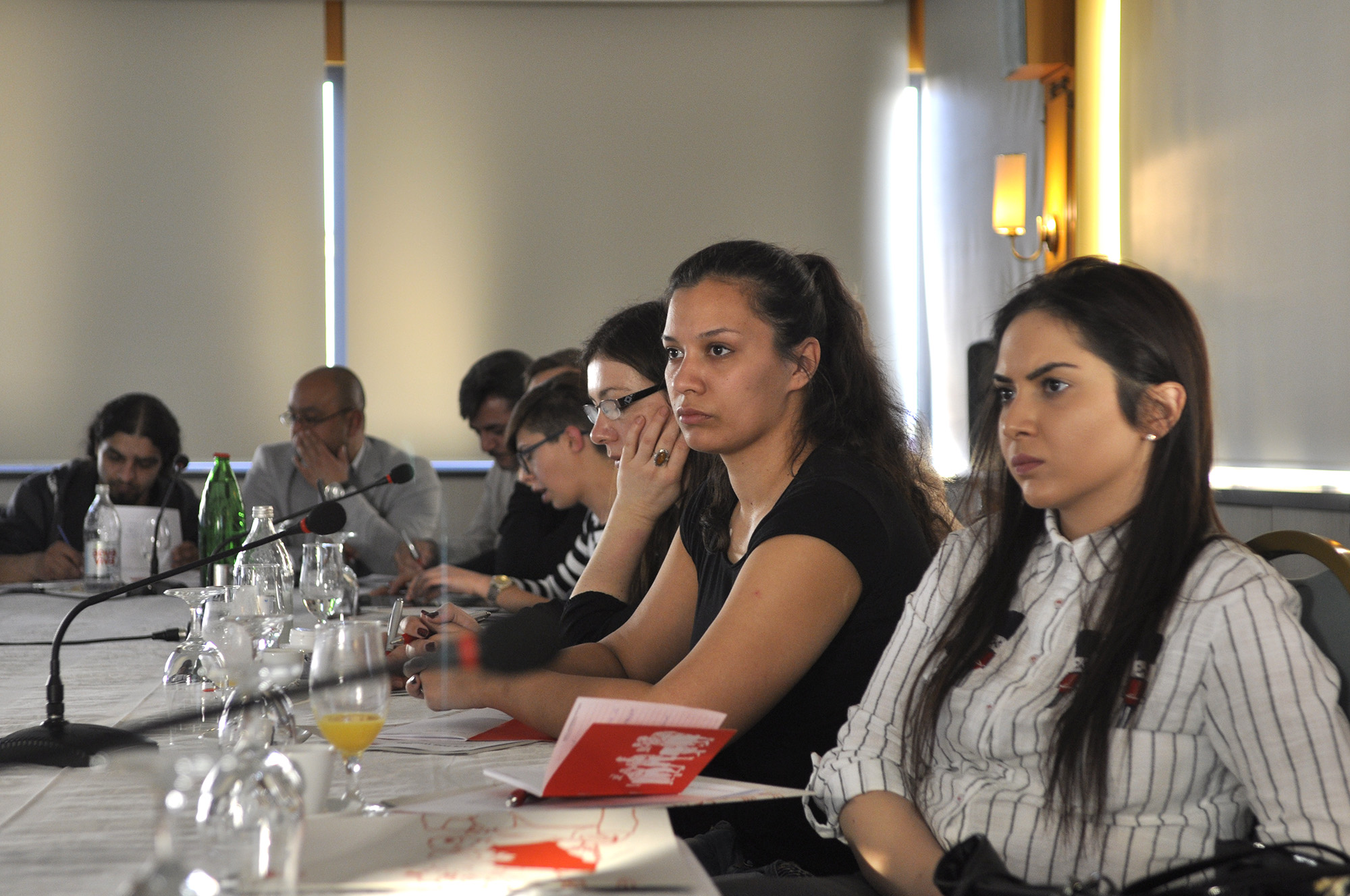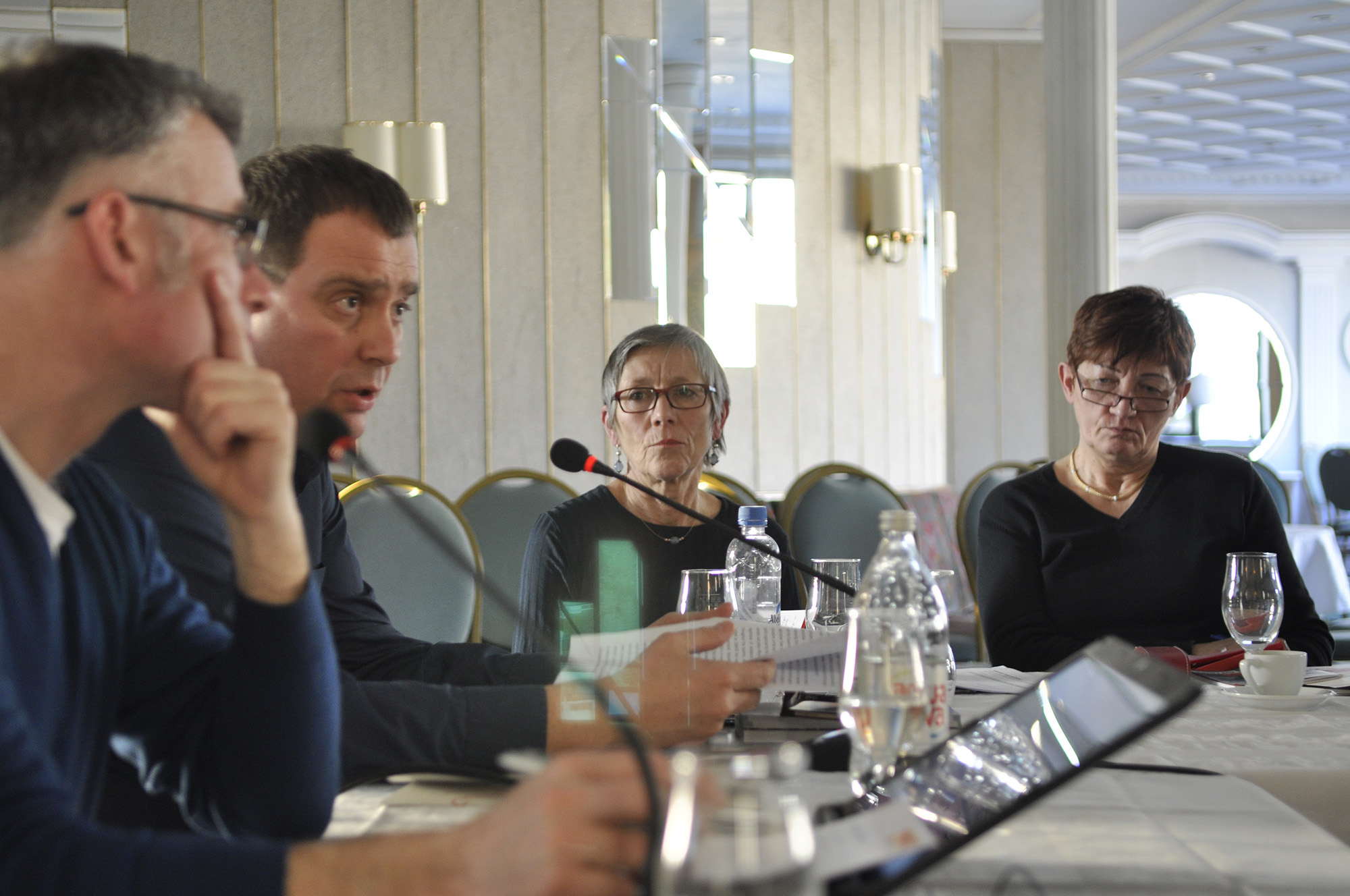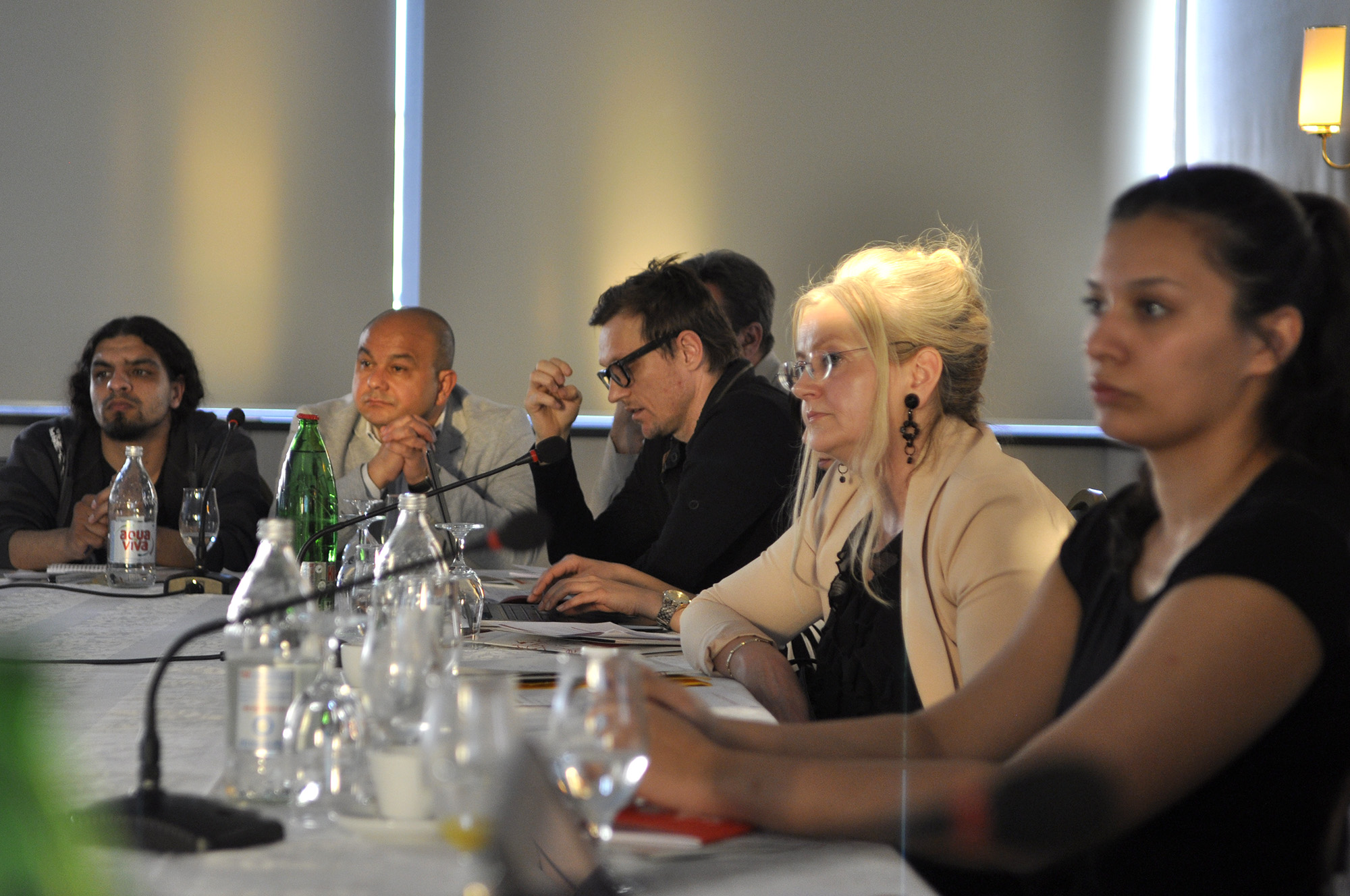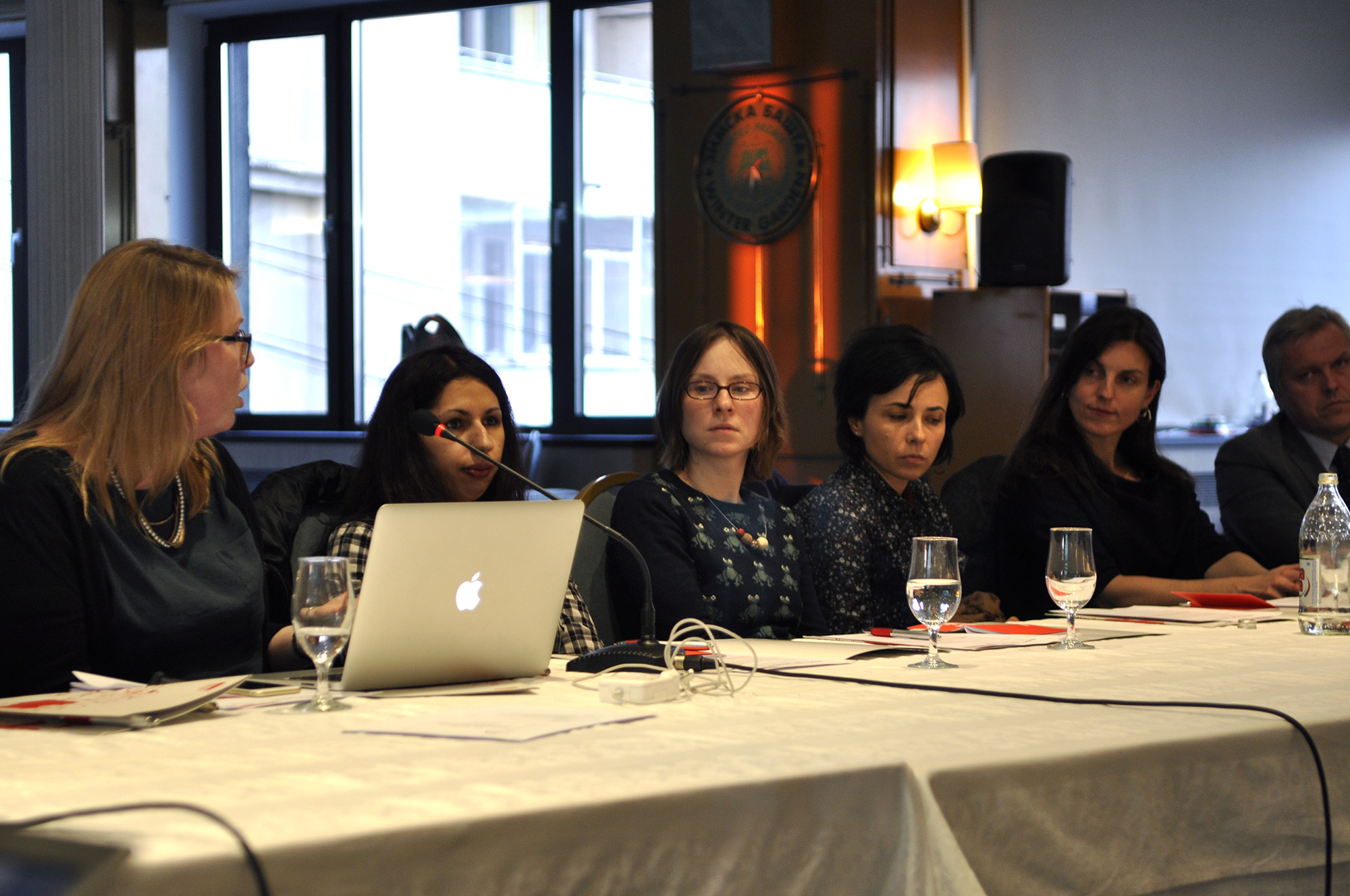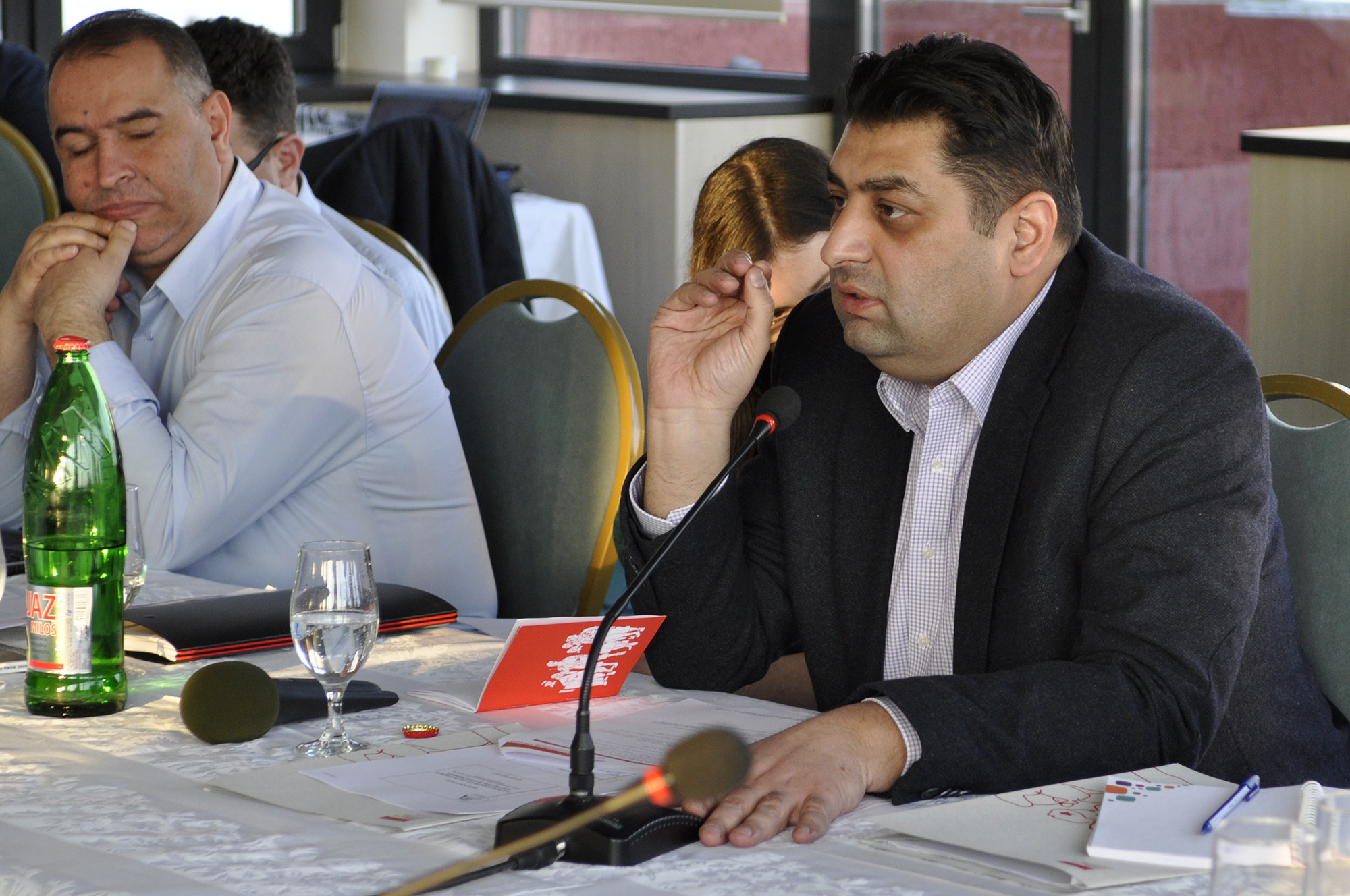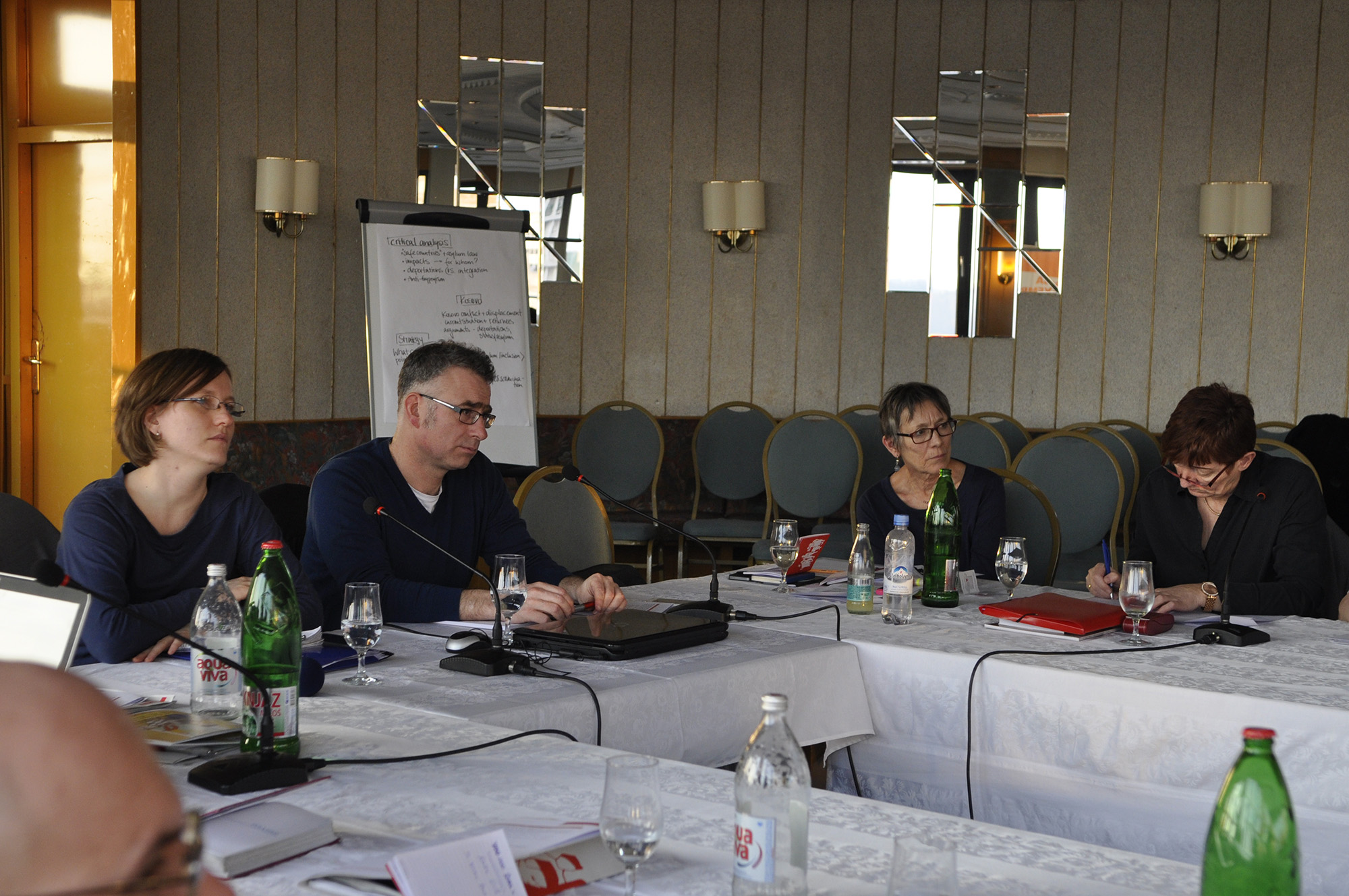SAFE FOR WHOM?

In September 2014 and October 2015, the German Bundesrat designated first Serbia, Macedonia, and Bosnia-Herzegovina, then Albania, Kosovo, and Montenegro as safe countries of origin. In September 2015, the European Commission proposed to establish a common EU list of safe countries of origin (SCO) mainly including countries in the Western Balkan region. The determination of a country of origin drastically limits the rights and guarantees available to asylum seekers and leads to a practice of discrimination of applicants on the basis of their nationality. Many migrant organizations and human rights advocates question the compatibility of the concept with international refugee law, as it is at odds with the obligation of the Geneva refugee convention to treat refugees without discrimination based on their country of origin. These measures target first and foremost asylum applicants from Western Balkan countries, whose application numbers have been in rising since 2008, but whose recognition rate is generally low, especially in Germany. A significant share of applicants are Roma that are subject to continued marginalization and discrimination in their home countries – including chronic unemployment, inadequate housing, lack of documentation, limited access to healthcare and education. Moreover, the decision has started a wave of deportations of (Roma) migrants from the Balkans who have lived in Germany under a tolerance status (“Duldung”) for several years or even decades.
With the intention to critically assess the safe countries of origin concept in both German and European migration policy, and to provide substantial political argumentation in opposition to it, Rosa Luxemburg Stiftung Southeast Europe held the workshop “Safe for Whom? The Safe Country of Origin Concept and the Case of Roma Migrants”. Having in mind that the Roma population is one that is most affected by the SCO legislation in Germany and the concept introduced into the European Agenda on Migration, the workshop concentrated on the consequences of its application for the Roma deported from EU countries to Kosovo and Serbia. The expert workshop took place from 18th - 20th of March and it brought together Roma activists and researchers from Serbian, Kosovar and German organizations , politicians and political advisors from Germany and the European Parliament, as well as representatives from UN organizations and relevant NGOs.
Problematizing the SCO concept, the participants insisted on the fact that it deliberately ignores the reality of widespread and systematic discrimination against Roma happening in the Balkan countries. It is introduced foremost to avoid individual screenings of asylum seekers, to speed up asylum processes and subsequent deportations as well as to decrease the number of asylum seekers. Annette Groth (MdB Die Linke) noted that migrants from the Balkans are negatively referred to as economic migrants, a term that ignores the fact that many Roma migrants from this region are not only living below the poverty line but are also subject to discrimination or possibly even persecution. Anti-Gypsyism is never really mentioned in migration policies as one of the reasons why Roma leave their countries, and there are very few institutional actions against it. The participants agreed that there is indeed institutional discrimination towards Roma and that the SCO concept is one additional aspect of it. Moreover, aggressive austerity measures imposed on the European periphery and the mode of EU integration needs to be taken into account when talking about the causes of migration and discrimination in the contemporary European context.
Davor Rako (UNHCR) and Claude Cahn (Adviser to the United Nations Resident Coordinator in Serbia) presented devastating statistics and facts on living conditions of Roma in Serbia and Kosovo. By far the worst situation is that of Roma categorized as Internally Displaced people (IDPs) where 92% of households are considered to be living under the poverty line. In 1999, around 245,000 people fled Kosovo and Metohija in the wake of NATO air strikes that forced the withdrawal of Serbian troops in the Kosovo war. There are still 97,000 internally displaced persons (IDPs) in Serbia and about 17,000 IPDs in Kosovo. The international community never created conditions for a safe return of IDPs, legal mechanisms for restitution and compensation of property, occupied, damaged or destroyed in Kosovo, are not functioning. Bashkim Ibishi (NGO Advancing Together, Kosovo) stressed that there is a lack of political will of the local authorities in Kosovo to deal with the problems of RAE, especially returnees who fled during the Kosovo war in 1999. Ibishi revealed devastating data on the living conditions of RAE in Kosovo, which shows that they are subject of continued institutional discrimination and segregation with no real access to adequate housing, education, employment, social security and justice.
Both in regard to Kosovo and to Serbia the participants argued, that the poor living conditions, segregation and discrimination of Roma should be regarded as cumulative discrimination – also according to international asylum law. Furthermore, when it comes to institutional rights protection in Serbia, Milan Antonijević (YUCOM Lawyers’ Committee for Human Rights), pointed out that not one case has been won on the issue of hate crimes against Roma in Serbia, although formally the protection of rights exists.
Romeo Franz (Hildegard-Lagrenne-Stiftung), Jasna Čaušević, the representative of the Society for Threatened Peoples (Gesellschaft für bedrohte Völker) and Doreen Blume from Roma-Center Göttingen added that a specific focus should be put on the situation of up to 21,000 Roma who have lived with a “Duldung” status in Germany for many years or were born there. There should be joint actions of left political actors and civil society advocating for a backlog regulation that allows these people to gain a residence status instead of being deported to the Balkans, after 20-25 years living in Germany. Especially since the authorities in the Western Balkan countries are not making honest efforts to improve the living conditions of Roma and stop their segregation, nor are there any efforts by them or the international community to support returnees. Dejan Marković (Forum Roma of Serbia) noted that in the newly adopted Strategy for Roma Inclusion in Serbia, there isn’t a single word on the issue of returnees.
The use of the SCO concept has already led to a considerable increase of deportations of Roma from Germany to the Balkan. Thus the participants agreed that increased efforts are necessary to criticize and fight against this concept as one core element of the current European migration policy that is mainly concerned with restricting the right to asylum. In detail, actions in terms of campaigning, lobbying, awareness raising in the German and European public and other political interventions were discussed. But also possible legal actions e.g. before the European Court of Human Rights and urgent help to be provided to those in danger of deportation or being deported are necessary. Forum Roma of Serbia representatives suggested to engage their networks with local Roma NGOs, other relevant NGOs, governmental bodies and media, as well as international organizations, to provide help for returnees and raise public awareness. RLS SEE will continue to work on this issue, both in cooperation with partners in Southeast Europe and with partners in Germany and Europe. One next step will be to edit and publish a brochure explaining and criticizing the SCO concept and its impacts to the German and European public.
Author: Tamara Baković-Jadžić
